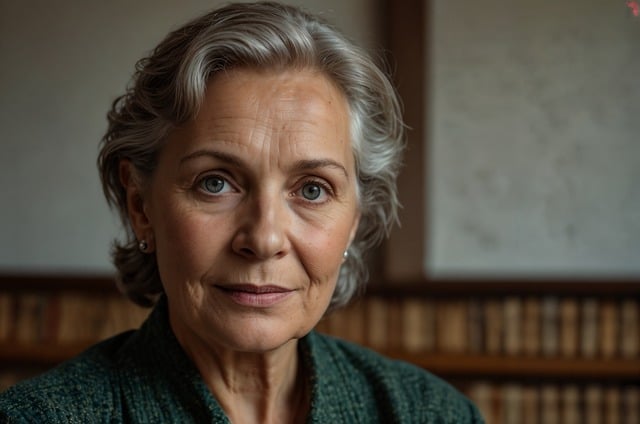End-of-life planning is an essential process that ensures your healthcare wishes are respected when you're unable to communicate them. This involves drafting a living will or advance directive to specify medical treatments you want or don't want, and appointing someone with a healthcare power of attorney to make decisions on your behalf. An end-of-life attorney can guide you through creating these legal documents, which are crucial for aligning your care with your preferences, particularly within palliative and hospice settings where comfort and quality of life are paramount. These attorneys specialize in medical directive laws and can ensure your advanced care directive is legally sound and reflects your values. End-of-life legal services also assist with establishing a medical power of attorney, ensuring that a trusted individual can act according to your wishes if you're incapacitated. Hospice care planning is another critical component, focusing on providing holistic support with dignity and in line with your end-of-life choices. In summary, thorough end-of-life planning with the help of an end-of-life attorney, including living wills, healthcare directives, and medical power of attorney arrangements, is vital for a peaceful transition at life's end, ensuring that your preferences are honored and your autonomy maintained.
Navigating the complexities of end-of-life care involves more than just medical decisions; it encompasses comprehensive planning that honors an individual’s wishes and ensures dignity in their final stages. This article delves into the critical aspects of end-of-life planning, emphasizing the pivotal role of legal documentation and personalized support. We explore how end-of-life attorney guidance through living wills, healthcare directives, and medical power of attorney can align with palliative care planning to provide a holistic approach to end-of-life care. By understanding the intricacies of advanced care directives and integrating end-of-life legal services, individuals can make informed decisions that prioritize their quality of life. This piece also addresses the emotional and ethical considerations, highlighting the importance of compassionate hospice care planning in maintaining a person’s autonomy and comfort during this delicate time. Through this exploration, readers will gain insight into the multifaceted nature of end-of-life care planning and how it can be tailored to individual needs for peace of mind at life’s conclusion.
- Navigating End-of-Life Care Planning: Understanding Your Options
- The Role of Legal Documentation in End-of-Life Care Decisions
- – Discussing Living Wills and Healthcare Directives
Navigating End-of-Life Care Planning: Understanding Your Options

Embarking on end-of-life planning is a profound decision that requires careful consideration and professional guidance. A living will, also known as an advance directive, articulates your preferences for medical treatment should you become unable to communicate your wishes. It is a critical component of comprehensive end-of-life planning, ensuring your healthcare choices are honored. In addition to the living will, a healthcare power of attorney or medical directive appoints a trusted individual to make decisions on your behalf when you cannot. This designate, along with other agents named in documents like an advanced care directive, work closely with end-of-life attorneys and palliative care planners to ensure your end-of-life legal services are aligned with your healthcare wishes. These professionals specialize in medical power of attorney arrangements, hospice care planning, and end-of-life care planning services, providing a compassionate framework for the care you desire at life’s conclusion. Engaging with end-of-life legal services early on can alleviate the burden on loved ones and afford you peace of mind, knowing that your end-of-life care preferences are clearly documented and legally sound.

When contemplating the end-of-life phase, it is crucial to have a comprehensive plan in place that reflects one’s wishes and values. End-of-life planning encompasses a variety of documents and decisions, including living wills and healthcare directives, which outline an individual’s preferences regarding medical treatment and care. These legal instruments, often crafted with the guidance of end-of-life attorneys, serve as vital components of a well-rounded end-of-life care planning strategy. A living will, for instance, specifies the kind of treatments one would like to receive or decline in scenarios where one is no longer able to communicate their decisions. In conjunction with these directives, medical power of attorney designations ensure that a trusted individual can make healthcare decisions on behalf of the principal in accordance with their expressed desires.
Navigating palliative care planning and advanced care directives requires a nuanced understanding of both medical and legal considerations. These plans are tailored to address the specific needs and preferences of the individual, focusing on comfort, quality of life, and pain management rather than prolonging life at all costs. End-of-life legal services play a pivotal role in this process by offering expertise in drafting these directives, ensuring they adhere to state laws and are legally binding. Hospice care planning is another facet of end-of-life care planning that integrates the support of hospice professionals who specialize in providing compassionate care for those with a terminal illness. This holistic approach includes emotional, spiritual, and social support, aligning with the individual’s wishes to live their final days with dignity and peace.
The Role of Legal Documentation in End-of-Life Care Decisions

In the realm of end-of-life care planning, legal documentation plays a pivotal role in ensuring that an individual’s wishes are honored when they can no longer communicate them. A living will and healthcare directive are foundational elements of this process, outlining an individual’s preferences for medical treatment and interventions at the end of life. These documents serve as a guide for healthcare providers and loved ones, providing clarity during emotionally charged decisions. Engaging with an end-of-life attorney to draft these legal instruments is advisable, as they can navigate complex medical directive regulations and ensure that your advance care directive accurately reflects your choices. Moreover, an end-of-life legal services provider can help you establish a medical power of attorney, appointing a trusted individual to make decisions on your behalf if you become incapacitated. This appointment is crucial for maintaining autonomy over one’s care and ensuring that the chosen person understands and respects your wishes.
Palliative care planning and hospice care planning also hinge upon the existence of comprehensive legal documentation. These specialized forms of care focus on providing comfort and dignity during the end-of-life process, and having a well-defined medical power of attorney or advanced care directive facilitates seamless coordination between you, your care team, and your family. The importance of these documents cannot be overstated; they are the linchpin for ensuring that your preferences for palliative and hospice care are respected, allowing you to pass with the dignity and comfort you desire. Legal documentation in end-of-life care planning is not merely a safeguard but an essential component of a well-rounded approach to the final chapter of one’s life.
– Discussing Living Wills and Healthcare Directives

End-of-life planning encompasses a range of decisions and documents that ensure an individual’s wishes are honored at the final stages of life. A pivotal component of this process is the creation of a living will and healthcare directive, which communicate an individual’s preferences regarding medical interventions and treatments. These documents serve as a guide for loved ones and healthcare providers, providing clarity during sensitive moments. An end-of-life attorney specializing in legal services for this area can assist in drafting these directives to align with one’s values and healthcare goals. It is through the careful crafting of an advanced care directive that individuals can maintain control over their medical power of attorney, ensuring their wishes are respected even when they cannot advocate for themselves. Palliative care planning integrates with this framework, offering a holistic approach to end-of-life care that addresses not only medical interventions but also the quality of life and comfort measures, ensuring a dignified and compassionate journey towards the end of life.
In concluding our discussion on the intricacies of end-of-life care planning, it is evident that individuals have both the responsibility and the means to approach their final chapter with dignity, autonomy, and compassion. The establishment of a living will or an advanced care directive serves as a clear guide for your medical wishes, complemented by the legal expertise of an end-of-life attorney who can navigate complex healthcare directives. Medical power of attorney designations ensure that your voice continues to be heard through a trusted representative. Additionally, palliative and hospice care planning offer comfort and support for both patients and their loved ones during this sensitive time. By utilizing end-of-life legal services, individuals can rest assured that their preferences are honored and their affairs are in order. It is a process that requires thoughtful consideration but provides immense peace of mind. Embracing this planning now can transform a potentially challenging transition into a period marked by respect for your choices and care tailored to your needs.
